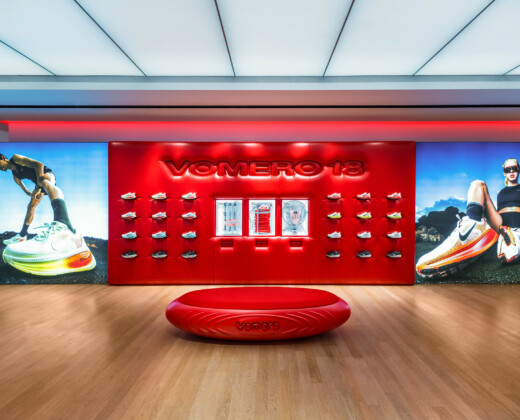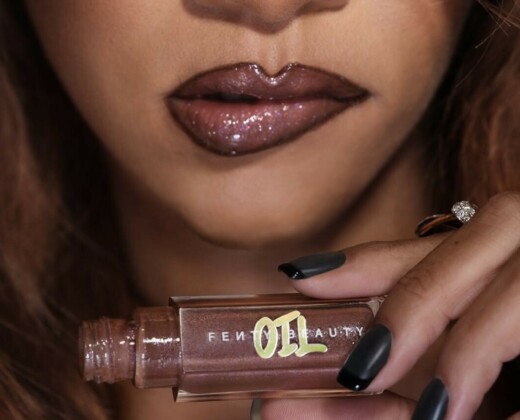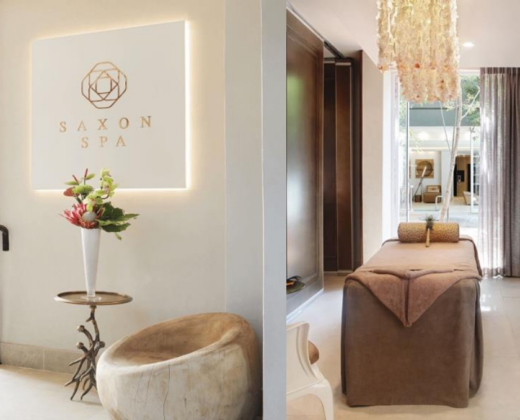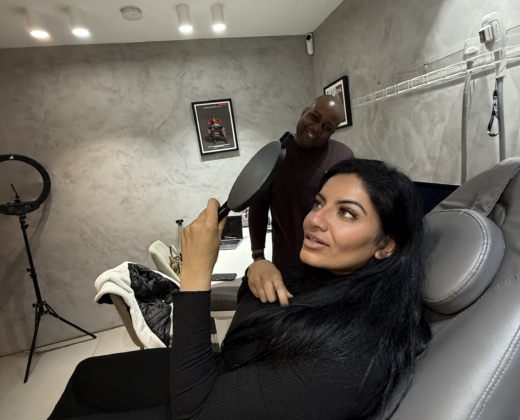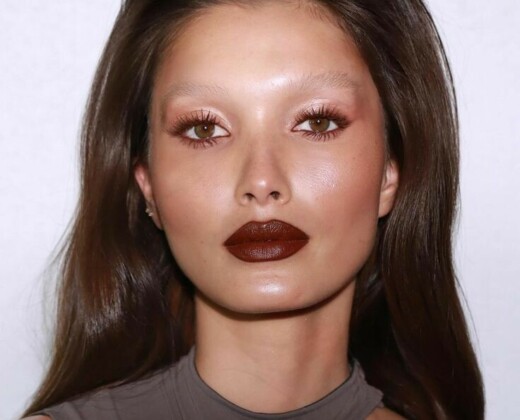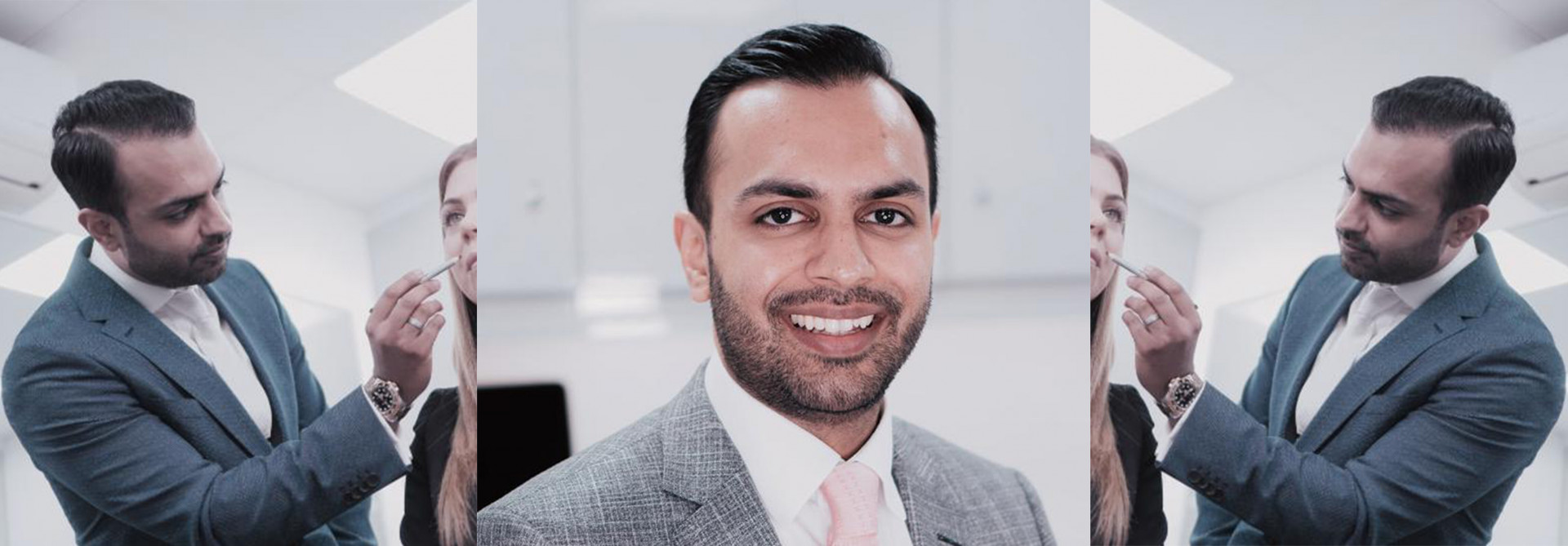
Entering your twenties and leaving behind your teenage years often merits itself a sigh of relief. Along with a multitude of firsts, you say farewell to uncontrollable hormones and bad skin… so we hoped. Yet dermal institute studies have shown that between 40% and 55% of the population suffer from persistent acne as an adult. Many of us have been struck with the acne sword when we least expected it, despite some having never experienced it before. In fact, as women, there is rarely a time when our hormones aren’t changing, often leading to breakouts.
Sadly, the reassurance that you will ‘grow out of it’ no longer promises hope. But, you’re not alone. When Kendall Jenner spoke out about her own journey with acne early last year whilst partnering with skincare brand Proactiv, it was a reminder to us all how acne does not discriminate. Seeking all the answers, we chatted – virtually of course – to the founder and top aesthetician at the award-winning Dr MediSpa clinic, Dr Munir Somji who really does know his stuff. Skin doctor to the stars, he has broken down why us and importantly to many, why now?
If you’ve found yourself spending your time and money on the latest beauty product that claims to cure and deliver you perfect skin, you might want to read this first. Over to you doc!
1). How often do you have clients come to your clinic seeking out treatment to aid adult acne?
This is one of the most common reasons for coming into my DrMediSpa clinic. About 40% of patients want an improvement in their skin.
2). Why is it that people who perhaps have never suffered with acne throughout their teen years, can then experience it as an adult?
There are a number of reasons for this. The first is that most doctors start to prescribe antibiotics for acne when it first appears. This works initially as it kills the bacteria responsible for creating spots. However, the bacteria that remains develops a resistance and becomes even more difficult to treat. Consequently, an acne course which would typically last a year may take longer and be more difficult to treat. The second reason is the widespread use of the contraceptive pill. Most females are using this a lot earlier and throughout young adult life. Acne tends to manifest in these patients when they come off contraception. Suddenly the hormones are imbalanced and the skin can break out for a long time. Also, women are having children later. So, normally hormones were balanced before age 30 and this is not the case currently.
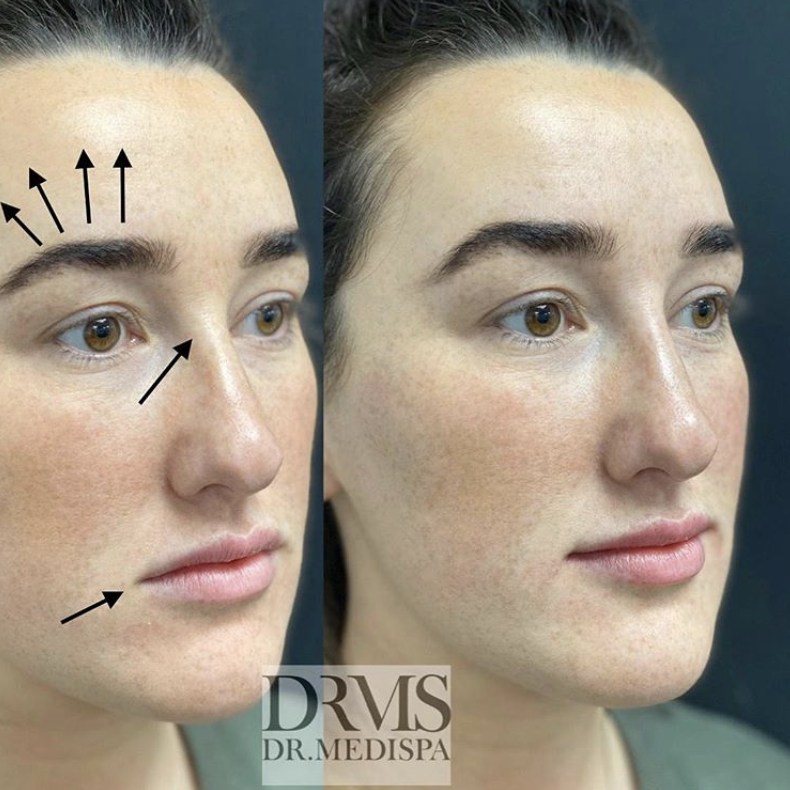
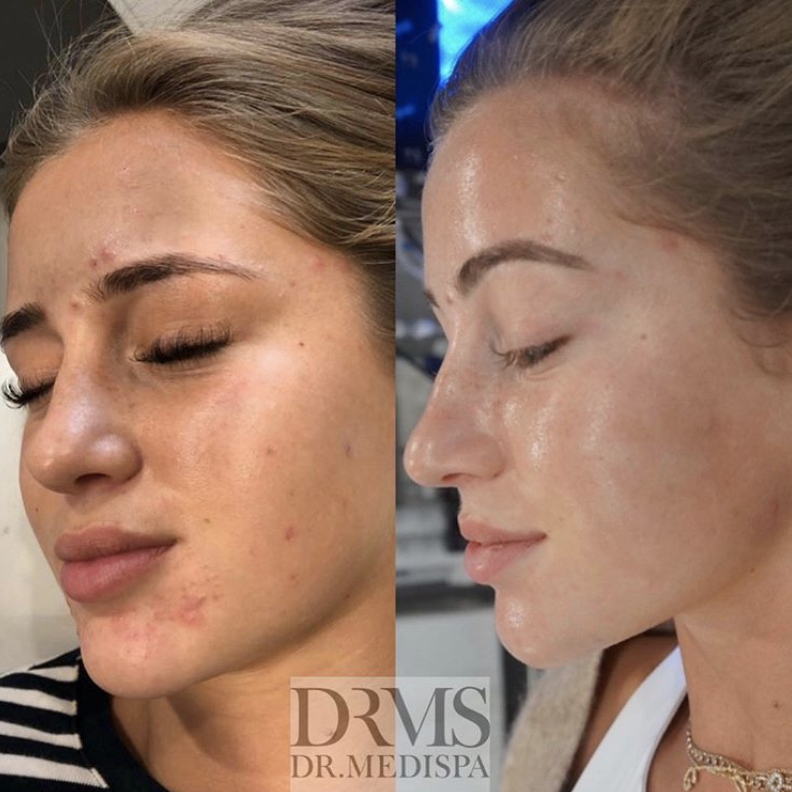
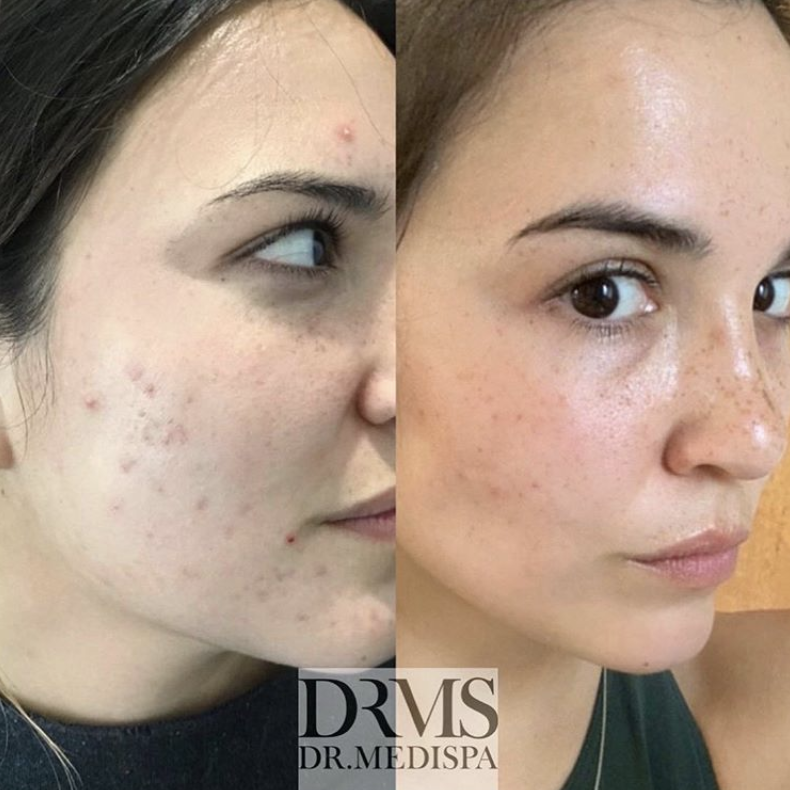
Images taken from @drmedispa Instagram
3). Is there a difference in the acne commonly experienced by teenagers or young adults to the type people may develop as an adult?
Teenage acne should ideally be treated with topical medication to limit the damage and scarring. It generally lasts up to two years in extreme cases. If it does persist, then stronger medication may be required. Adult acne tends to be hormonal in nature and patients notice a purge during the time of ovulation as well as spots around the lower face and jawline.
4). In your experience, does this affect more women or men?
Females tend to suffer more with adult acne than men. Most adult acne in men is as a result of not treating teenage acne with stronger drugs.
5). Is acne hereditary?
Although all the specific genes have not been identified, it is clear from my patients that there is a definite genetic element.
6). Are there any known causes of adult acne?
The most common causes are: hormonal, rosacea acne (which is commonly misdiagnosed) and cystic acne.
7). What are some of the treatments offered to your clients who suffer from adult acne?
We offer a wide range of treatments depending on the cause. The first step we take is to tailor their homecare which is different for every patient. The second step is to determine whether they would benefit from any medication at all. The third is to explore treatment options. For mild acne, light chemical peels with salicylic acid work a treat. Hydrafacials are also fantastic to maintain results. Sometimes for cystic acne, we have a special acne laser which is an erbium glass laser which destroys acne bacteria deep inside the skin. For patients with active acne and scarring, needled radiofrequency devices such as Fractora work very well.
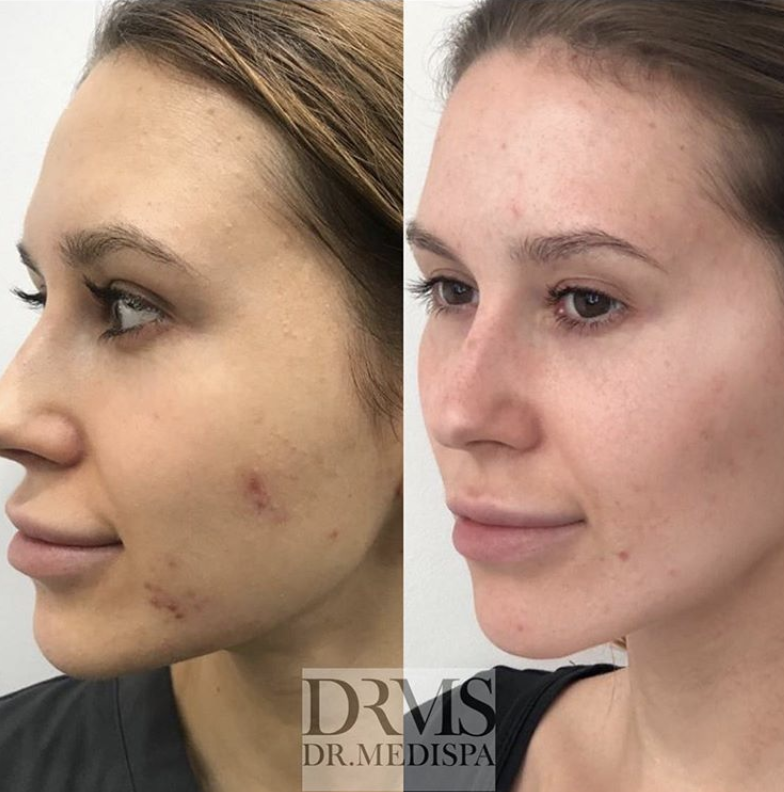
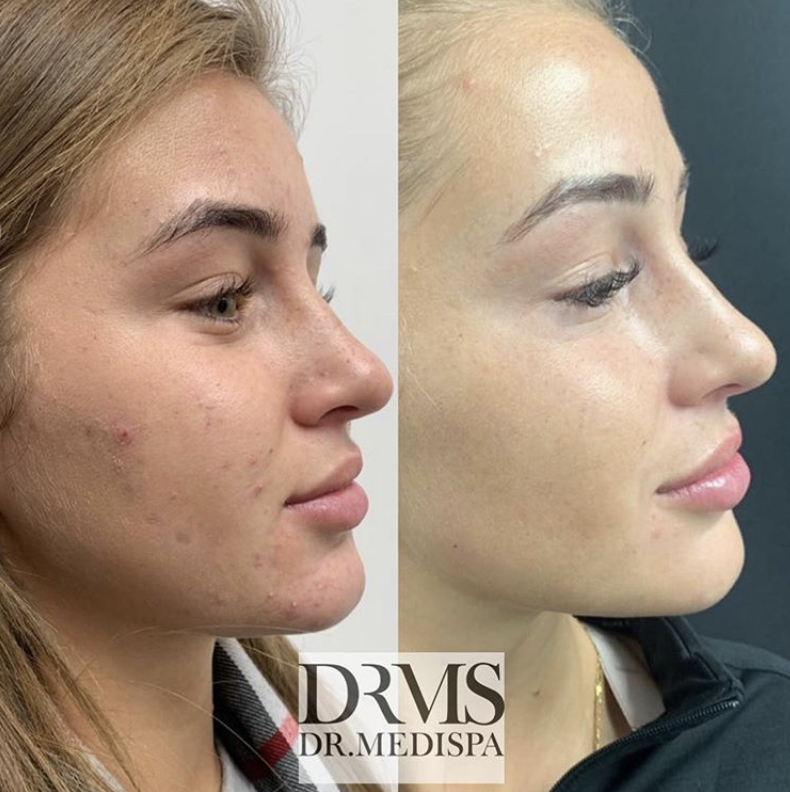
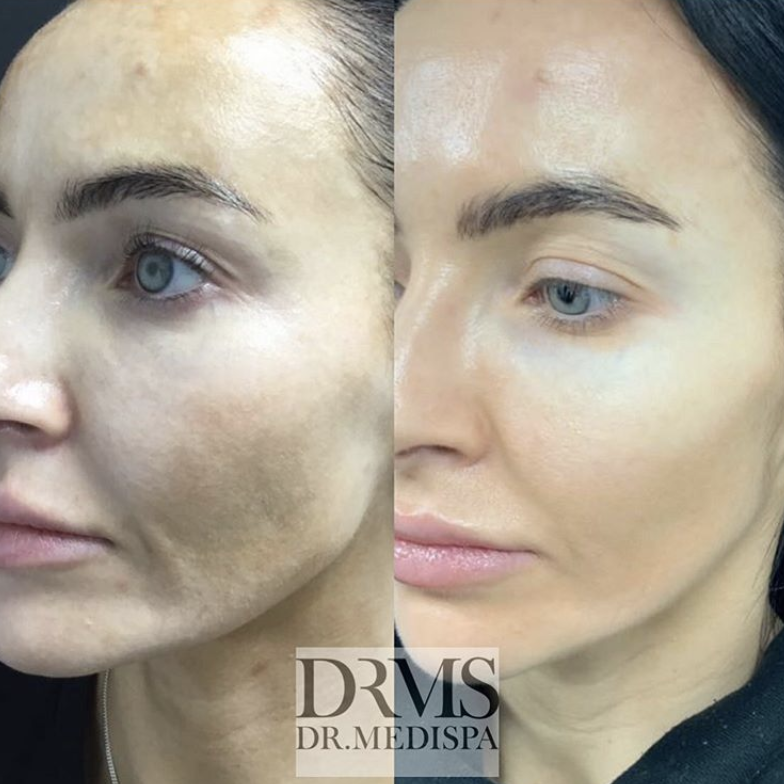
Images taken from @drmedispa Instagram
8). When the sessions are complete, is there a high chance of the acne returning?
Acne can return dependent on the cause, but it is always less than what it was. Most of the time some maintenance is required.
9). What advice would you give to a client to carry out at home in order to reduce their acne?
The key is patience; it takes a full 12 weeks to see any changes. The three most important ingredients are vitamin C, retinol and a ceramide supplement. Vitamin C reduces bacteria levels, helps smooth skin and reduce redness as well as gently exfoliating the skin. Retinol has the most evidence for reducing acne in all medical literature. It is also fantastic for helping scarring. Ceramide creams protect the skin barrier and help the skin to function effectively and prevents the dryness that is associated with most acne treatments.
10). Would you recommend any natural remedies for acne or just primarily products with chemical ingredients? Is one method better than the other?
I’ve noticed over the years that diet plays a huge role. It is worth trialling abstaining from dairy and seeing if it makes a difference. Bread and yeast can also be triggers. At-home face masks can help. My at-home face mask consisting of yoghurt, gram four, turmeric and honey works a treat to reduce bacteria and soothe the skin. Of course, medical-grade treatments will always be more effective but masks such as these always help.
11). What’s your view on using prescribed medicine to treat adult acne?
I think that as a first action, it’s mostly not required, but some cases are so severe that stronger medication is required so that patients do not waste their time with ineffective treatments.
Words by Amy Arfi
, , , , , , , , , ,


